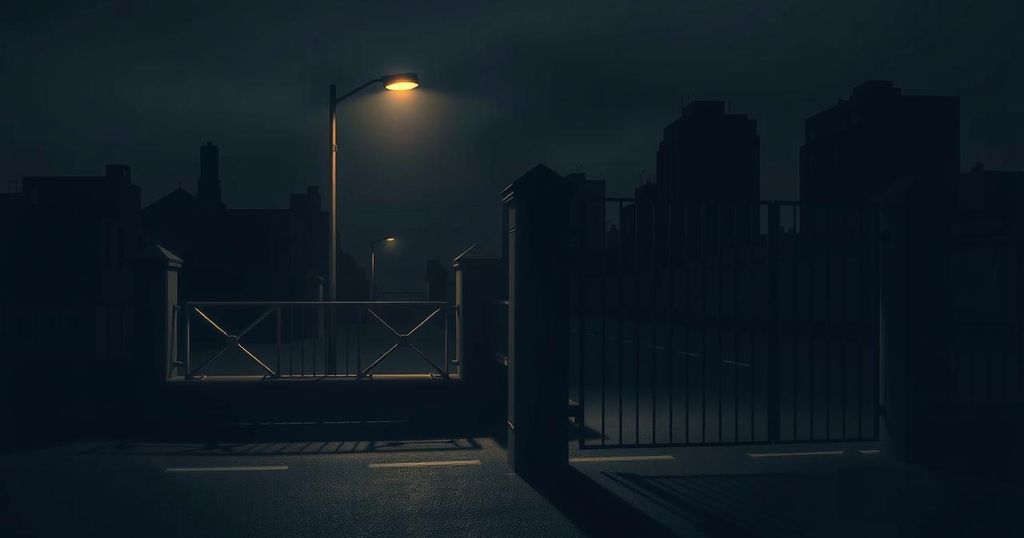South Sudan has enacted a nightly curfew following violent attacks on Sudanese-owned properties resulting in several deaths, injuries, and widespread unrest. The police are actively involved in rescuing and protecting vulnerable Sudanese nationals. The backdrop of this violence is rooted in ethnic tensions and ongoing humanitarian crises stemming from Sudan’s internal conflicts.
Following a series of violent attacks on Sudanese-owned businesses and homes in South Sudan, authorities have imposed a nightly curfew to help restore order. The police reported three fatalities and several injuries during clashes involving security personnel in Juba and Aweil. Notably, during these incidents, three homes of Sudanese nationals were deliberately set ablaze in Aweil.
In a bid to maintain peace, Insp Gen Abraham Manyuat Peter declared that no one would be allowed outside between 6:00 PM and 6:00 AM local time. This measure is intended to prevent any further violations of public and private property. Reports indicate that 45 Sudanese traders were rescued and are currently receiving police protection in Juba.
The recent influx of Sudanese refugees has stemmed from ongoing conflict in Sudan, which has led to a humanitarian crisis affecting approximately 25 million people. This turmoil has escalated since warring factions began fighting in April 2023. Human rights organizations have reported racial attacks and significant civilian casualties as darker-skinned individuals have been targeted by armed groups in Sudan.
The actions depicted in disturbing recent videos have incited outrage within South Sudanese communities, both domestically and abroad. Many young men, fueled by anger over these incidents, retaliated against Sudanese firms. Gunfire was prevalent as security forces attempted to control the unrest, particularly along Juba’s busy Tambura Road.
Businesses in Juba, such as the Konyo Konyo Market, largely remained closed as a precaution, with significant price increases observed in essential goods. In light of the disturbances, police have increased their presence to safeguard Sudanese nationals. Eyewitness accounts suggest that looting attempts have occurred beyond Juba, leading to clashes with police forces in various towns.
Reports of spontaneous protests in Tonj town were also noted, highlighting the widespread unrest caused by these tensions. Although unverified, these accounts underscore the high volatility of the situation and the urgent need for effective intervention to protect vulnerable populations.
The recent violence in South Sudan against Sudanese individuals and businesses follows a long history of ethnic tensions and conflict stemming from Sudan’s protracted civil wars. South Sudan gained independence from Sudan in 2011 but ongoing strife in the region has led to a significant influx of Sudanese escaping humanitarian crises. The actions of certain groups highlight how deeply rooted racism and ethnic prejudices continue to affect the interpersonal dynamics within these communities, exacerbated by current events.
In summary, the imposition of a curfew in South Sudan marks a crucial response to escalating violence against Sudanese nationals amid an ongoing humanitarian crisis. These developments have exacerbated existing racial tensions, leading to retaliatory attacks and significant unrest. The situation remains precarious, with urgent calls for protective measures for vulnerable populations amidst rising hostilities.
Original Source: www.bbc.com






